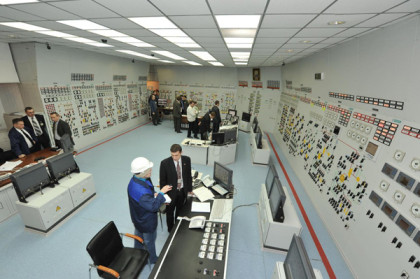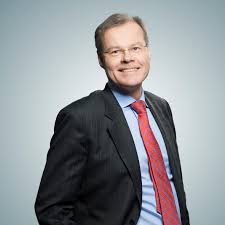
Fortum, Gazprom Energoholding and Rosatom signed in December 2014 a protocol to start a restructuring process of the ownership of TGC-1 in Russia. As part of restructuring, Fortum would found a jointly-owned company with Rosatom for TGC-1’s hydro assets. Fortum’s goal is to transfer its current, 29.45% stake in TGC-1 to a majority stake in the joint venture. Fortum not yet in agreement on TGC-1 hydro power – If restructuring proceeds, ready to take a minority stake in Fennovoima nuclear project
Under negotiations
As announced earlier, Fortum is negotiating on the restructuring of the territorial generating company, TGC-1. The negotiations have not, however, come to conclusions, that would make it possible for Fortum to decide on its participation in the Fennovoima nuclear power project. Should the negotiations proceed later, and Fortum received the majority ownership in TGC-1 hydro assets, Fortum would still be ready to participate with a minority share (max 15%) in the Finnish Fennovoima nuclear power project on the same terms and conditions as the other Finnish companies currently participating in the project. It is not possible to estimate the negotiations schedule.
National Nuclear Corporation
ROSATOM is the Russian Federation national nuclear corporation bringing together circa 400 nuclear companies and R&D institutions that operate in the civilian and defense sectors. With 70 years’ expertise in the nuclear field, we are a global leader in technologies and competencies offering cutting-edge industry solutions. We work on a global scale to provide comprehensive nuclear services that range from uranium enrichment to nuclear waste treatment.
-We are continuing negotiations with all parties involved but it will take its time. For Fortum, the TGC-1 restructuring and the Fennovoima project are a comprehensive package where both parts need to be completed, says Fortum’s Interim CEO and CFO Timo Karttinen.
In case the restructuring was successfully completed, Fortum has announced that it would be ready to participate with a minority share in Fennovoima’s nuclear power project, which also Rosatom is participating, on the same terms and conditions as the other Finnish companies currently participating in the project, says Helena Aatinen Senior Vice President, CommunicationsFortum produces and sells electricity and heat in the developed industrial areas of the Urals and in the oil and gas producing regions of Western Siberia in Russia. Electricity is sold on the wholesale market and heat on the local markets. Fortum has approximately 4,200 employees in Russia and has had diverse business relations with the country for more than five decades. Currently, prior to the announced restructuring (2 Dec 2014), Fortum has a 29.5% holding in TGC-1, which is an associated company and is accounted for using the equity method.
Russia important for Fortum
The Russian operations carry an important role in Fortum’s strategy and the company’s goal is to achieve solid earnings growth in the segment. In 2014, the sales by Fortum’s Russian business were approximately EUR 1,055 million (20% of Fortum’s sales) and the comparable operating profit was EUR 161 million. Fortum has a total of nine power plants in Russia, most of them are combined heat and power (CHP) plants fuelled by natural gas. Some of the CHP plants are also fuelled by Russian coal. The newest of the plants, the Nyagan power plant, is a natural gas-fired condensing power plant. At the end of 2014 the electricity production capacity of Fortum’s plants was a total of 4,758 MW and the heat production capacity 13,466 MW. This represents about 32.5% of Fortum’s overall electricity production capacity and about 77% of its heat production capacity.
New power plants
Fortum’s extensive investment programme consisting of eight power plant units is a key factor for the company’s growth in Russia. Six of the investment programme units are already in operation and the last two are expected to be completed during the second half of 2015. The investment programme will nearly double Fortum’s electricity production capacity in Russia, increasing it to over 5,100 megawatts. In 2011, Fortum commissioned three units as part of the investment programme: Tyumen CHP-1, Chelyabinsk CHP-3 and Tobolsk CHP.




